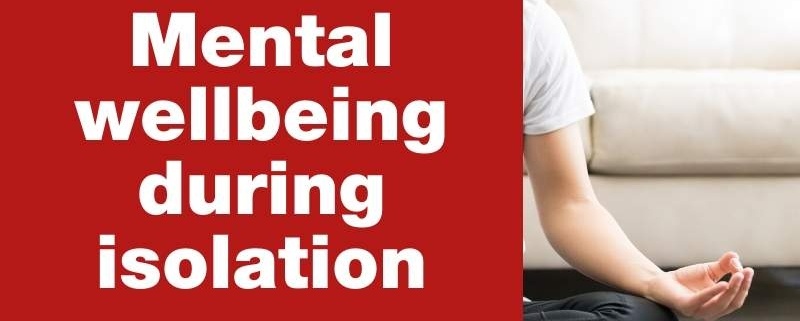Mental wellbeing during isolation
With many of us perhaps feeling concerned, stressed or panicked by the current situation, we’ve put together a few ways of looking after your mental-wellbeing during these challenging times. The below is not medical advice but aimed to help a little as you face life’s current worries.
Connect with people
If you are in self-isolation, you may start to feel just that, isolated. What better opportunity than now to re-connect with old friends, keep in touch with family and check in with your nearest and dearest. Video calls are a great way to stay connected but why not brighten someone’s day by sending them a hand-written letter? Also, a lovely thing for your children to do as part of their homeschooling.
Help Others and Offer Support
Being there to help others can be a mood boost for both parties. Local support groups can offer suggestions as to how you can help your local community. Maybe a phone call to an elderly resident is needed or perhaps you’re able to pick up medication for someone who is self-isolating. Little actions can go a long way.
On a larger scale, the NHS has implemented a campaign for “NHS Volunteer Responders.” This is “a new group that will carry out simple, non-medical tasks to support people in England who have been asked to shield themselves from coronavirus because of underlying health conditions. They will be used by healthcare professionals to make sure people who are highly vulnerable to coronavirus (COVID-19) are able to stay safe and well at home.” You can see if you are eligible to help via the following website: https://www.england.nhs.uk/participation/get-involved/volunteering/nhs-volunteer-responders/
Relaxation techniques
Colouring In – Not just for kids! Adult colouring-in has taken off in a big way in the last few years. It’s a great way to practice Mindfulness and switch off from the world around. You can print out designs to colour in at home: https://www.justcolor.net/ or even colour in digitally on your computer or phone. https://colormandala.com/
Yoga / Meditation – you can join in live via various online classes or YouTube have tonnes of instructional videos for everyone, from beginner to pro. Yoga can massively help with your mental wellbeing.
Reading – why not take a moment to switch off and escape the world around you. Reading is great for focussing the mind and also a great way to begin an effective sleep routine.
Sleep Routine
Maintaining a good sleep routine is always important but with many now having a less structured day, perhaps it’s time to focus on this. It’s easy to fall into the trap of staying up a little later and snoozing the alarm clock a few more times when your daily routine is not so rigid.
If you’re having trouble sleeping, the NHS website offers some top tips: https://www.nhs.uk/oneyou/every-mind-matters/sleep/
With daylight hours increased last Sunday now is the ideal opportunity to set a new sleeping pattern for the Summer months.
Exercise
Current NHS advice permits “one form of outdoor exercise a day, for example, a run, walk, or cycle – alone or with members of your household.” It is also important to remember to maintain a 2-metre distance from others when outside. So, how does exercise boost your mood? Physical activity causes the brain to release endorphins. These are chemicals which, in simple terms, cause you to feel happier and improve feelings of well-being.
If you are unable to go out at the moment, why not participate in an online exercise class. From circuit training to ballet, there is something for everyone!
Remember to take into account your own fitness levels and health/medical conditions before embarking on an exercise regime.
Content is based on the Government’s health guidance and COVID-19 measures at the time of writing. Please refer to the government website to ensure that this information is current.
If you have concerns regarding your mental health and wellbeing, further information, help and support can be found by visiting https://www.nhs.uk/oneyou/every-mind-matters/.



